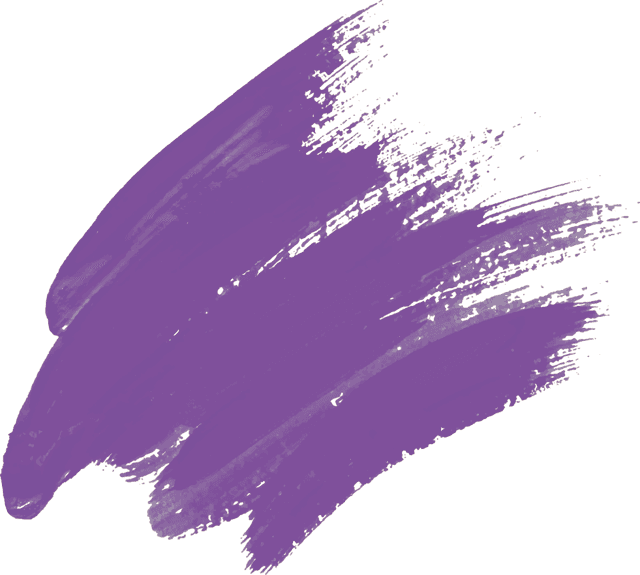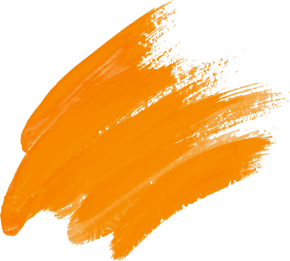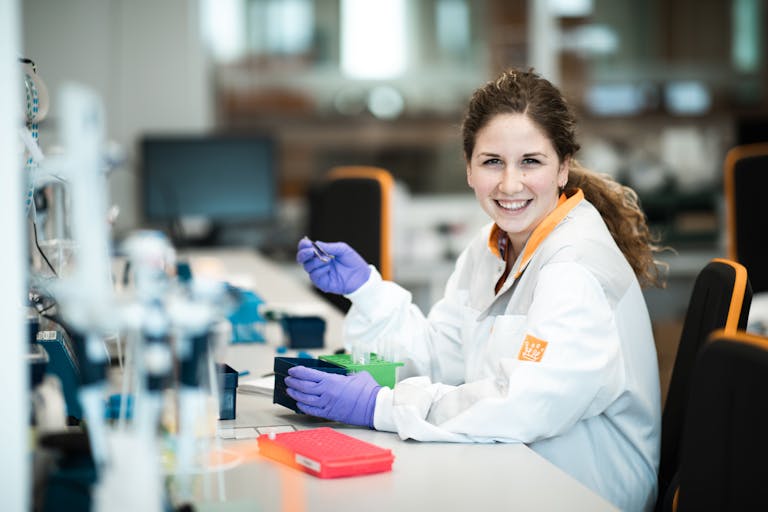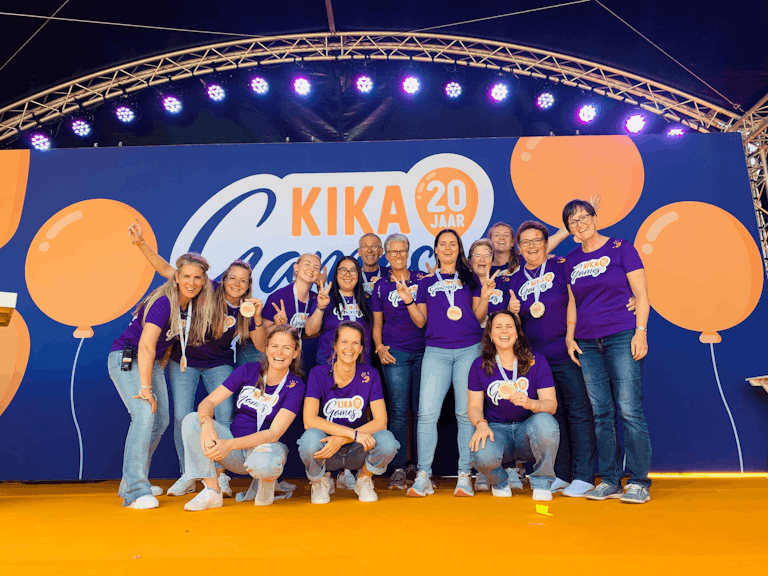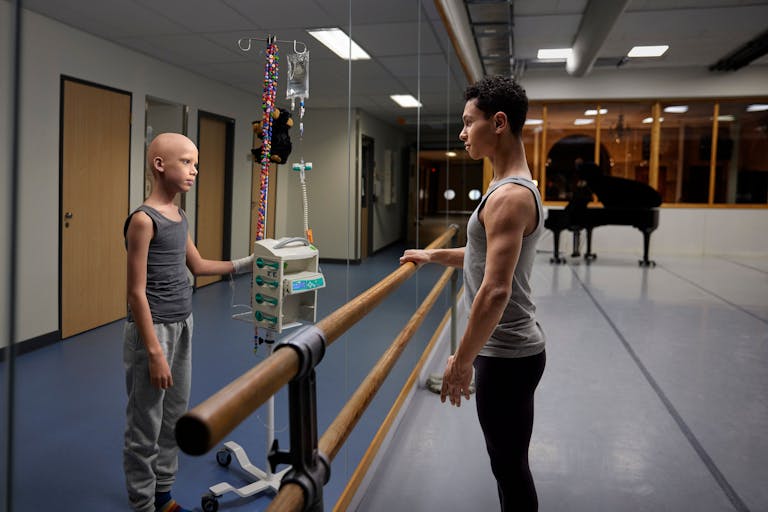‘I do not want to fight cancer, but cure it’
PhD-student Inés Paniagua Cabana works at the Netherlands Cancer Institute and is one of the winners of the Tom Voûte Young Investigator Awards 2024, organized by KiKa.
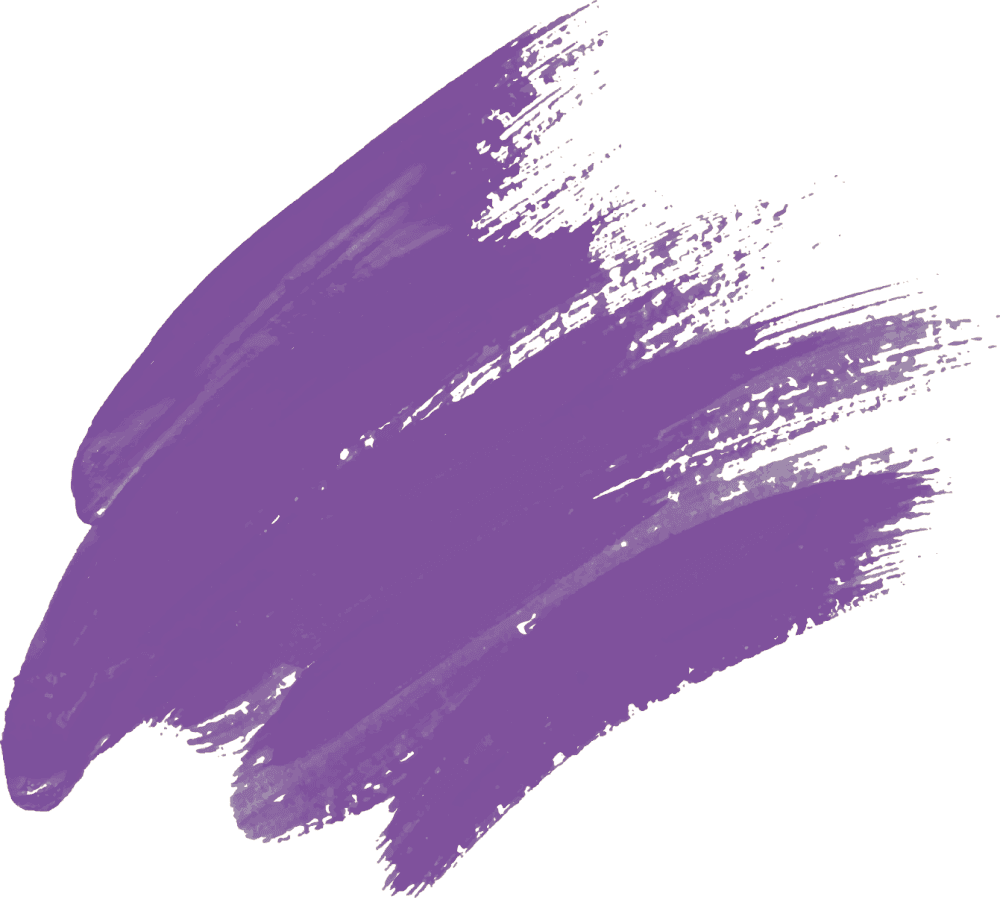

Inés comes from a very small region in the northern part of Spain and investigates the ends of our DNA, named telomeres. These telomeres protect the DNA, like the protective tip at the end of your shoelace. Every time a cell divides, this protective tip gets a little shorter. Eventually, telomeres get too short, and cells can no longer divide. Unfortunately, cancer cells can bypass this by activating a telomere maintenance mechanism. This allows them to grow indefinitely. One such mechanism is called Alternative Lengthening of Telomeres (ALT). ALT is present in 20% of all childhood cancers, with certain cancer types showing ALT in up to 80% of patients. How cancer cells extend their telomeres using ALT is poorly understood. Inés is determined to change this and develop new therapies for children with cancer. Let's get to know Inés and reflect on the Tom Voûte Young Investigator Awards Day 2024.
What inspired you to work on this topic?
‘My dad was an economist, but very fascinated by biology. He loved taking me to the fields to show me the structure of leaves and to play with bugs. He also collected very old stamps of animals, which really sparked my curiosity about the natural world. Later on, during high school, I had a very passionate biology teacher. Listening to him talking about chromosome biology was super interesting and inspired me to pursue a career in that area.’
Why is it important to specialize in childhood cancer research?
‘This telomere maintenance mechanism, called ALT, occurs very often in paediatric cancers. But there is almost no research on it. At the same time, paediatric cancers are very clinically demanding. This made me realize that this is a hotspot of medical need, where we need to focus on.’
What does your research mean for children with cancer and their parents?
‘It will shed light on specific genes that are involved in telomere maintenance. Clinicians should pay attention to these genes when they are investigating the DNA of children with cancer. Due to specific alterations in these genes, these children might have a higher risk of having a more aggressive tumour. Knowing these alterations would help to direct therapy choices. Of course, we also work on developing new therapies, with the ultimate goal of improving treatment options for these children.’
On October 3rd, Inés presented her research during the Tom Voûte Young Investigator Awards, a presentation competition, organized by KiKa, as a tribute to the Dutch researcher and paediatric oncologist Tom Voûte. As a selected candidate, she received two speech coaching workshops from professional speech coach Maurits Koster, trainer at Speak to Inspire. A jury chose Inés and PhD-student Paul Kemps as the two winners. They both won €2.500 to spend on research or personal development.
Why did you join the Tom Voûte Young Investigator Awards?
‘It is a very nice chance not only to present my work to a wider audience but also to reinforce my commitment to this topic’.
How did you experience the Tom Voûte Young Investigator Awards?
‘I felt extremely grateful and was very happy to share the stage with really good competitors. That already felt like a great accomplishment. It is a very nice concept that encourages young researchers to continue what they are doing, and it is also very fun and interesting. The audience was also very engaged. During the day, I completely forgot that it was a competition.’

Did the presentation workshops from Speak to Inspire help you?
‘Yes, absolutely. It was really eye-opening to learn about how to play with the energy of your audience to keep them engaged during the presentation. We also did fun exercises to let you experience how to deal with nerves. The trick is to sit with your nerves and notice them. Don't push them away. I was able to apply this tip during my presentation and felt completely at ease.’
How will the Tom Voûte Award provided by KiKa help you?
‘This award is a great push forward for my career. It also is an extra encouragement to continue doing research and it allows me to follow a course on neuroscience and visit a conference in Brussels.’
Would you recommend others to participate next year?
‘100% yes. It will help you to understand your own research better because you have to explain it to a wide audience. But it is also a really great opportunity to meet very supportive people that you would not meet otherwise and extend your network. Overall, it was a fantastic and unforgettable experience.’
What is your biggest dream for future research?
‘I would like to have a big and lasting impact on society. Specifically, I do not want to fight cancer, but cure it. I want to understand the disease and stop it before it occurs. Especially for children.’
Lees meer
